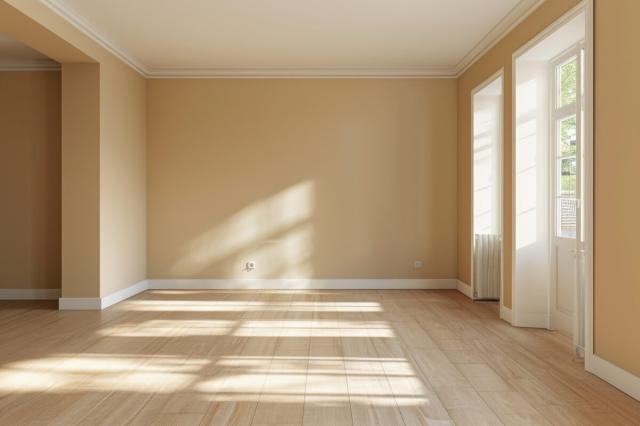
As a landlord in Miami, whether you're just starting out or have years of experience in the real estate sector, creating a compelling property listing is always crucial. The advertisement for your rental property is a renter's initial glimpse of your space, providing a snapshot of what life could be like there. Miami's diverse population and thriving economy make it a prime location for renters, presenting you with a unique chance to optimize your investment.
However, navigating the intricacies of Miami's local rental market, comprehending legal stipulations, and making your rental property stand out can be daunting. According to Costar Group’s Market Trends reports, as of August 2024, the average rent in Miami is $2,075 per month, which is 35% higher than the national average of $1,536 per month. This makes Miami one of the most expensive cities in the US for renters. Despite these challenges, understanding the rental market dynamics and legal requirements can position you to make the most of your investment and help you attract the best renters possible.
In the following sections, you'll discover guidance to help you through the process of listing your rental property in Miami. These sections provide vital insights and legal considerations to ensure a smooth and profitable leasing experience.
- Listing your house for rent in Miami, FL
- Does Miami have rent control?
- Do you need a license to rent out your house in Miami?
- Is there a security deposit limit in Miami?
- Is your property in line with Miami housing codes?
- Does your Miami listing abide by Fair Housing Laws?
- Marketing your rental property in Miami, FL
- Enhance your house's curb appeal
- Take professional photos of your rental
- Write a compelling property description
- Include contact information
- Engage with prospective renters
Listing Your House for Rent in Miami, FL
When it comes to renting out your house in Miami, it's vital to understand the unique legal aspects involved. As a landlord in Miami, you're required to adhere to both state and local laws, which cover areas such as security deposits, rent control, and more. Before listing your Miami rental house, it's important to familiarize yourself with the following regulations that will shape the information included in your property listing.
Does Miami have rent control?
In Miami, there is currently no rent control legislation in place. This lack of rent control provides landlords with the flexibility to set rental prices based on market conditions. However, it's key to be aware of the competitive nature of the Miami rental market. To attract potential tenants, it's advisable to price your property competitively.
If you choose to list your house on Apartments.com, you'll have access to complimentary rent comparison reports. These reports offer valuable insights into the rental market, allowing you to price your rental appropriately, compare your property’s value to similar properties, and understand market conditions such as average days on the market and average rent rates. This data can guide you in making informed decisions to maximize your rental income while maintaining competitiveness in Miami's rental market.
In Miami-Dade County, where Miami is located, tenants are protected by specific regulations despite the absence of rent control. These regulations are designed to prevent landlords from unfairly increasing rent as a form of retaliation or discrimination.
One of these regulations pertains to the notice period for rent increases. According to Miami-Dade County Code § 17-03, landlords can stipulate a minimum notice period in the lease agreement. If the proposed rent increase is more than 5%, a 60-day notice must be given to tenants.
Furthermore, Florida law (Fla. Stat. § 83.03) requires all parties involved in a lease agreement to act in good faith. While it doesn't specify a minimum notice period, it implies that landlords should provide sufficient notice before increasing rent. Typically, the notice period aligns with the lease termination notice period, unless local laws state otherwise. The notice periods are:
- 7 days for a week-to-week lease
- 15 days for a month-to-month lease
- 30 days for a quarter-to-quarter lease
- 60 days for a year-to-year lease
These regulations aim to keep tenants informed and protected from sudden changes in their lease agreements, including rent increases. For the most accurate information, tenants are advised to refer to the official Miami-Dade County website or consult with a local real estate attorney.
Do you need a license to rent out your house in Miami?
Yes, if you plan to rent out your house in Miami, you will need a license, regardless of whether it's for short-term or long-term rentals.
Short-term rentals (less than six months and one day) require a Certificate of Use and a Business Tax Receipt according to Miami-Dade County regulations (Miami-Dade County Code § 33-28.) The Certificate of Use ensures that the rental property complies with all applicable codes, ordinances, and laws. The Business Tax Receipt is a tax for the privilege of engaging in or managing any business, profession, or occupation within Miami-Dade County.
For long-term rentals (more than six months), the state of Florida requires a Business Tax Receipt (Fla. Stat. § 205.0535.) While the specific regulations tied to this requirement can vary, the City of Miami adheres to the same law as Florida. But if you have any questions, it’s always recommended to check with a local real estate attorney or contact Miami-Dade County’s Neighborhood Regulations Division at (786) 315-2552 to ensure you're in compliance with all laws and regulations. Keep in mind that failure to comply with these regulations can result in fines and legal complications.
Is there a security deposit limit in Miami?
In Miami, as in the rest of Florida, there is no statutory limit on how much a landlord can charge for a security deposit. However, Florida law regulates the handling of security deposits.
According to the Florida Statutes, landlords must return the security deposit within 15 to 60 days after the tenant has moved out, depending on whether the tenant disputes deductions made by the landlord. If the landlord intends to impose a claim on the deposit, they must give the tenant written notice by certified mail to the tenant’s last known mailing address of his or her intention to impose a claim on the deposit and the reason for imposing the claim.
After that, the tenant then has 15 days to object to the claim. If there is no dispute, the landlord must return the remaining deposit (if any) along with interest (if held for at least 1 year) within 30 days (Fla. Stat. § 205.0535.) For more information about the regulations Florida imposes upon security deposits, visit the Florida Senate website or consult with a local real estate attorney for the most accurate and current information.
Is your property in line with Miami housing codes?
Ensuring your property complies with Miami housing codes is crucial for the safety of your tenants and to avoid potential fines and legal issues. The City of Miami and Miami-Dade County have established housing codes that set minimum standards for housing and living conditions.
Here are some common housing code violations to watch out for:
-
Electrical issues: Faulty wiring, lack of GFCI outlets in bathrooms and kitchens, and inadequate electrical services can all be code violations.
-
Plumbing problems: Leaky pipes, inadequate hot water, and improper bathroom ventilation are common issues.
-
Structural defects: This can include a leaking roof, broken windows, or unstable stairs and railings.
-
Health and safety concerns: Lack of smoke detectors, presence of mold or pests, and inadequate heating or cooling systems can all be violations.
-
Improper or illegal construction: Any construction or alterations done without the proper permits can be a violation.
Regular inspections and maintenance can help you stay on top of these issues and ensure your property remains in compliance with local housing codes. If you're unsure about the specific requirements for your property, it's always a good idea to consult with a local real estate attorney or contact the City of Miami Building Department at (305) 416-1100 or the Miami-Dade County Permitting and Inspection Center at (786) 315-2000 or bldgdept@miamidade.gov.
Does your Miami listing abide by Fair Housing Laws?
Creating a property listing that is both appealing and legally compliant is crucial. The Fair Housing Act, established in 1968, sets the legal framework for property listings, prohibiting discrimination based on race, color, national origin, religion, sex, familial status, or disability. This law governs all real estate transactions, including rental property listings.
To adhere to the Fair Housing Act, it's essential to avoid any language that could be perceived as discriminatory in your listing. This includes refraining from expressing tenant preferences based on personal characteristics like race or age, referencing proximity to religious institutions, or making assumptions about potential tenants' disabilities.
Instead, concentrate on describing your property's features and amenities in an unbiased manner. If you're uncertain about the specifics of fair housing laws, consider seeking advice from a local real estate attorney or refer to the U.S. Department of Housing and Urban Development’s website. This will help you ensure your listing is not only attractive but also legally sound.
Marketing Your Rental Property in Miami, FL
After ensuring your property meets all legal requirements and standards, the next step is to attract potential tenants by effectively marketing your rental. To make your listing stand out in Miami's competitive rental market, consider these strategies:
Enhance your house’s curb appeal

Enhancing your rental property's curb appeal in Miami can significantly increase its attractiveness to potential tenants. Start by incorporating native tropical plants such as some Palmetto palm trees, Hibiscus coccineus (also known as the Scarlet rosemallow) and Hydrangea quercifolia (also known as Oakleaf hydrangea) to create a lush, inviting landscape that mirrors Miami's exhilarating environment.
Additionally, regular lawn maintenance, including mowing and watering, is to maintain a green, healthy appearance. A well-kept lawn can be achieved by adding a sprinkler system, which is particularly useful during Miami's hot tropical summer months. Refreshing your rental home's exterior with a new coat of paint in coastal, pastel shades can brighten its overall look and help it resonate with the local aesthetic.
As an experienced Miami landlord states, "Try to make [your] listings as lavish and luxurious as possible." This can be achieved by paying attention to detail, such as installing attractive outdoor lighting and creating inviting porch or patio areas. Solar-powered lights can highlight key features and entryways of your rental property while being eco-friendly and cost-effective, harnessing the abundant Miami sun to provide sustainable illumination.
Comfortable seating with colorful cushions and shade solutions like awnings or pergolas can transform your outdoor space into a cozy, paradisiacal retreat. Finally, regularly cleaning driveways and walkways using pressure washing techniques or hiring a professional power washing company ensures these areas remain spotless, creating a positive first impression for any potential renters visiting your property. By focusing on these elements, you can boost your rental home’s curb appeal and stand out in the competitive Miami rental market.
Take professional photos of your rental

In today's digital age, where most renters begin their property search online, high-quality photographs are essential for making your rental property catch the eye of renters. Professional photos can greatly enhance your listing, presenting your property in the best light and attracting prospective tenants.
However, if you don’t have access to a professional camera, don’t worry — a smartphone can be an excellent tool for capturing alluring images of your rental home. Especially since modern smartphones come equipped with advanced photography features that can rival traditional cameras. Here are some tips for photographing your rental property with a smartphone:
-
Natural light: Take advantage of Miami’s natural light by photographing during the daytime.
-
Curtains and blinds: Open curtains and blinds to illuminate rooms and capture the essence of Miami's ambiance.
-
Tropical climate: Leverage the city’s tropical climate by showcasing your calm, summery outdoor area, emphasizing your property's year-round appeal.
-
Steady shots: To prevent blurry images, keep your phone steady by using a tripod or stabilizing your phone against a solid surface such as a small book.
-
Angles and perspectives: Try experimenting with various angles and perspectives to highlight each room's best features; aim to include three walls in every image to convey a sense of larger space.
-
HDR mode: High Dynamic Range (HDR) mode is a feature on your phone that helps balance light and dark areas in your photos. By combining multiple exposures into a single image, HDR ensures that details are clear even in challenging lighting conditions. This results in more vibrant and well-balanced photos, making your property listings more visually appealing.
-
Photo editing: After you finish taking all of your photos, it’s time to edit them with care; use photo editing apps to adjust brightness, contrast, and saturation for a polished finish.
By capturing high-quality photos of your rental home in Miami, you can accurately represent its best features and create a visual appeal that helps renters imagine themselves living in the space. This increases their interest and the likelihood of them reaching out for more information or scheduling a tour.
Write a compelling property description

Writing an engaging property description is crucial for attracting prospective tenants and setting your listing apart from others in Miami’s rental market. As a landlord, aim to keep your property description concise yet descriptive, highlighting the property's most attractive features. Include essential details such as the number of bedrooms and bathrooms, unique amenities like in-unit washers/dryers, spacious yards, or smart home features. Also, don't forget to mention any included fees or utility costs that can add value to your rental home!
Adding a summary of your property's desirable features can significantly boost its appeal. This could include its close proximity to Miami's lively neighborhoods, acclaimed dining and shopping districts, major business centers, or accessibility to public transportation. When you choose to list with Apartments.com, your property automatically gains an extra edge. Each listing is enriched with neighborhood overviews, information about nearby schools and universities, transportation details, and points of interest. This comprehensive view of the potential lifestyle in their new home makes your property even more alluring to prospective residents.
Include contact information
Making it easy for prospective tenants to contact you is crucial for creating a strong listing that effectively rents out your property. Ensure your listing includes clear contact information, enabling renters to inquire further about the property, schedule tours, or start the application process. Be sure to specify your preferred contact method — whether by phone, email, or another method — to keep communication lines open and straightforward.
By listing with Apartments.com, you can utilize our online portal. This feature allows renters to apply directly through your listing on Apartments.com and enables you to receive and manage inquiries seamlessly online.
Engage with prospective renters

After listing your rental property, the next step is interacting with potential residents. Staying vigilant and responsive to messages, texts, emails, and any notifications from interested renters is crucial. Scheduling property tours, being punctual for appointments, and providing thorough, informative tours can significantly influence a renter's decision.
Remember, the promptness and professionalism of your responses reflect the quality of your management and contribute to building a positive relationship from the outset. As another experienced Miami landlord states, "Treat [your] tenants with great respect and allow them to feel at home in the properties they have rented.” This sentiment is crucial in engaging effectively with prospects, as it raises your chances of securing a tenant more quickly and sets the tone for future interactions, laying the groundwork for a respectful and smooth tenancy.
List Your Miami House for Free on Apartments.com
In the competitive and expensive Miami rental market, ensuring your listing stands out to potential tenants is vital. Apartments.com offers a powerful solution. By listing your rental property for free on our website, you access a vast network of active renters looking for their next home. Our platform provides unmatched visibility, helping your rental home reach the broadest audience of renters possible.
Streamlined rental process
Apartments.com equips landlords with a suite of tools designed to simplify the rental process:
-
Tenant screening: Efficiently screen applicants to find the best fit for your property.
-
Customizable lease agreements: Utilize our lease wizard to create state-specific, legally binding lease agreements tailored to your needs.
-
Online maintenance platform: Manage maintenance requests effortlessly with our user-friendly online system, allowing tenants to submit requests and track progress.
Support every step of the way
Listing your Miami property on Apartments.com ensures a seamless and efficient rental experience. Whether you're new to being a landlord or an experienced property manager, Apartments.com provides the support and resources you need to succeed. Whether you're in Miami or Tampa, Apartments.com can help you list your property. By leveraging our platform, you'll benefit from a streamlined rental process and comprehensive assistance throughout your landlord journey.
FAQ
How do I list my house for rent?
You can list your house for rent on Apartments.com in a few simple steps:
- Sign up
- Enter your listing's basic details
- Upload some photos
- Get published
How can I create a legally binding lease agreement?
Create a state-complaint, legally binding lease agreement on Apartments.com for free. It can be done in minutes and will meet local and state requirements.
How much does it cost to list my house on Apartments.com?
It is completely free to list your house for rent on Apartments.com. You don't have to spend any money unless you want the premium plan which includes features like larger ads and adding videos to your listing description page.
The information presented in this article is not a substitute for legal advice. Always consult an attorney for questions regarding your specific situation.











